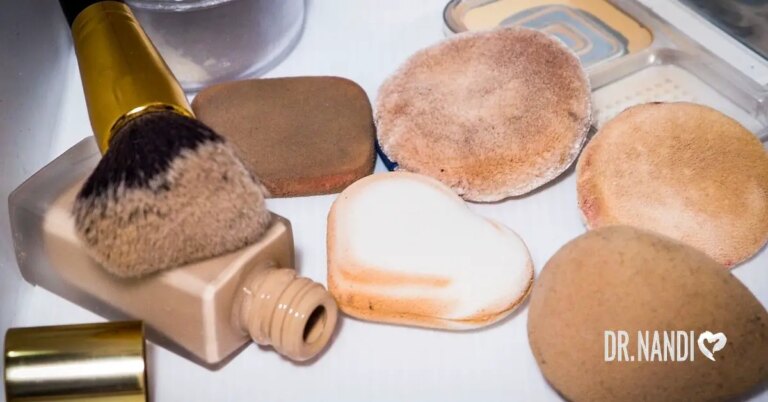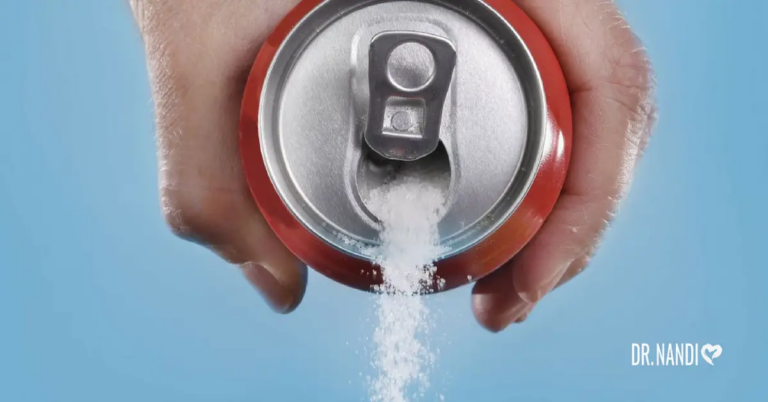What Is Sleep Apnea?
Sleep apnea is a sleep disorder that can be very dangerous if not treated. It’s where a person’s breathing is interrupted during sleep, thus starving the brain (and the rest of the body) of oxygen. Because it happens while a person is sleeping, she can often be oblivious to it and therefore the disease can go untreated, leaving the patient stopping breathing up to hundreds of times a night.
Symptoms Of Sleep Apnea
Because sleep apnea occurs whilst sleeping, it’s often difficult to know if you’re suffering from it. Of course, you can’t tell what happens when you’re sleeping. If you have a partner who shares your bed, he or she can often help with knowing if you’re suffering from the symptoms of sleep apnea. Otherwise, if you’re able to record yourself when sleeping, this can aid in detecting symptoms, if you think you might be suffering from sleep apnea.
- Waking from sleep with a choking sound
- Waking from sleep, gasping for breath
- Waking up with dry mouth
- Loud or chronic snoring
- Stopping breathing whilst asleep
- Pauses in breathing followed by snorting and gasping for air
Other symptoms can manifest during the day as a result of the sleep apnea at night. These can include, but are not limited to:
- Sleepiness or fatigue
- Memory loss
- Morning headaches
- Difficulty concentrating
- Depression
- Irritability
- Loss of sex drive
Because most of the symptoms above can be indicative of a number of conditions, sleep apnea is usually not the first point of call for diagnosticians. The fact that most of the symptoms occur while the patient is sleeping means it’s easy for them to be missed and attributed to other conditions. Depression, for example, can be one of the symptoms of sleep apnea but can also be a cause of some of the other symptoms.
Types of Sleep Apnea
There are two types of sleep apnea. The most common type of sleep apnea is obstructive sleep apnea and the rarer type is central sleep apnea.
Obstructive sleep apnea
This is where there is an obstruction in the airways. This can be due to many reasons, not all of which are in your control. The muscles in your throat can relax while you’re sleeping causing the throat to completely close and therefore you to temporarily stop breathing. Luckily, usually, your brain will realize there’s not enough oxygen coming through and will wake you up so you can start to breathe again. Unluckily, this means you probably won’t get a restful night’s sleep. It also occurs when something partly or completely blocks your airways (like a larger than average uvula) meaning your body has to work harder to ensure they stay open.
Central sleep apnea
This is where the brain fails to send signals to the muscles to breathe. It’s not that you can’t breathe, it’s that you simply don’t even try to breathe. This type of sleep apnea can occur as a complication of another condition such as stroke or heart failure. It can be caused by anything that impacts on the ability of your brainstem to control your breathing. Your brain stem is what connects your brain to your spinal cord and it controls most of the functions of your body, including breathing. Therefore, when something disrupts it, the effect can be disastrous. This type of sleep apnea is more common in patients over 65, perhaps to do with other medical conditions they’re more likely to have.
Who Can Develop Sleep Apnea?
Anyone can develop sleep apnea but there are risk factors that make it more likely for a person to develop it.
Unfortunately, not all of these are factors that can be changed. For example, males are more likely to develop sleep apnea than females, although it’s unclear why that is. It’s also more common in those aged over 40, although it can occur at any age from childhood upwards.
Having a family history of sleep apnea can mean you’re at increased risk of developing it. As can having large tonsils, a large tongue, small jawbone or a deviated septum. Larger tonsils mean there’s not as much space in the throat and therefore the throat can become obstructed much more easily. A deviated septum is where the ‘septum’, or bone and cartilage that divide the nasal cavity, is off center, or crooked, to an extent that it can cause breathing difficulties which can lead to sleep apnea.
Men with a collar size greater than around 43cm (17 inches) have an increased risk of developing OSA, and although this can’t always be changed, losing weight could decrease the size of the neck and therefore lower the risk.
There are some lifestyle changes that can be made to try to minimize the risk of developing sleep apnea or to help treat it if you have it.
Complications of Sleep Apnea
Studies are currently looking into the possibility of links between sleep apnea and dementia. More research is needed before a firm conclusion can be drawn.
Not only can sleep apnea be caused by conditions such as strokes and heart failure but there are also studies suggesting that they can be the cause of those conditions as well. Patients with untreated moderate sleep apnea have a three times greater risk of having a stroke than those without it.
Sudden, and frequent drops in blood oxygen levels can adversely affect heart health, either causing heart problems or worsening them if they are already present.
There are also links between the secondary symptoms of sleep apnea and driving and work-related accidents. It has been suggested that over twenty percent of traffic accidents in Europe are due to sleepiness at the wheel and this sleepiness can be the result of sleep apnea. The American Academy of Sleep Medicine argues that screening for sleep apnea ought to be mandatory in jobs such as a truck or train driving, where the worker is directly responsible for the safety of others. They estimate the economic cost of undiagnosed OSA to be almost $150 billion in 2015, including things such as workplace accidents, motor vehicle accidents and lost productivity in their calculation.
How To Decrease The Risk Of Developing Sleep Apnea
Lose weight
Being overweight is one of the main risk factors for developing sleep apnea. Studies suggest that it is possible that obesity may worsen OSA because of fat deposition at specific sites. Fatty deposits in the tissues surrounding the upper airway appear to result in a smaller opening of the airways and increased collapsibility of the upper airway, predisposing to apnea. Therefore, it can be assumed that losing weight could potentially rectify this issue and perhaps even resolve sleep apnea entirely in some cases. Studies have shown that obesity substantially raises the risk of morbidity from many conditions, illnesses, and diseases, including those linked to sleep apnea. Losing weight and maintaining a healthy weight can help to minimize the risk and is strongly recommended by the American College of Physicians.
Quit smoking
The chemicals used in manufacturing cigarettes are irritating to the human body and therefore can increase upper airway inflammation causing reduced function. Regardless of how much damage you think has already been done, if you smoke, it is never too late to stop smoking but the sooner you stop the better and the more chance your body will have to recover.
Exercise
Not only can regular exercise help with weight loss, but it can also be a protective factor in itself. Studies show that those participating in higher levels of physical activity have a reduced likelihood of developing sleep apnea compared to those people who engage in lower levels of physical activity. This is because toning muscles can help tone the ones in the back of your throat and neck, and therefore lead to fewer obstructions.
Methods For Treating Sleep Apnea
CPAP
Continuous positive airway pressure (CPAP) therapy is the most common treatment for sleep apnea. A CPAP machine treats obstructive sleep apnea by providing a gentle flow of positive-pressure air through a facial mask to keep the airway open during sleep. There are many types of CPAP machines, ranging from basic to high tech, and the masks used can vary also, meaning there is a lot of choice and ability to find the kit that’s best suited to your needs.
The wearer of this type of mask will typically wear the mask every night, as it helps keep you breathing. Unfortunately, one downside of this treatment is that if you stop wearing the mask, the obstructive sleep apnea will most likely come back. This is treating the symptoms, not the underlying issue.
Surgery
Uvulopalatopharyngoplasty (UPPP): In this surgery, soft tissue on the back of the throat and palate is removed. This increases the width of the airway at the opening of the throat.
Lifestyle changes
Studies have shown a link between poor diet quality and sleep apnea. It’s important to maintain a high-quality diet if you have sleep apnea. A better diet can help you lose weight and maintain a healthy weight and this could help treat the sleep apnea.
Frequently asked questions about sleep apnea
Q. I’m not obese, so I can’t have sleep apnea, right?
Although there are links to obesity and sleep apnea, you can still have the diagnosis of sleep apnea without having obesity.
Q. I snore and I’m tired during the day, so I definitely have sleep apnea?
Snoring itself doesn’t necessarily mean that you have sleep apnea; you could just snore. Fatigue can also be caused by a lot of other things, including depression or simply not enough sleep, so if your energy is flagging during the day, make sure you check out anything else it could be.
Q. Drinking alcohol helps me sleep better, so I shouldn’t cut it down, right?
Even though it may seem that drinking alcohol makes you sleep better, it does reduce REM sleep. Althouh you get to sleep initially, the quality of that sleep will be reduced. Additionally, alcohol can worsen sleep apnea symptoms.



















